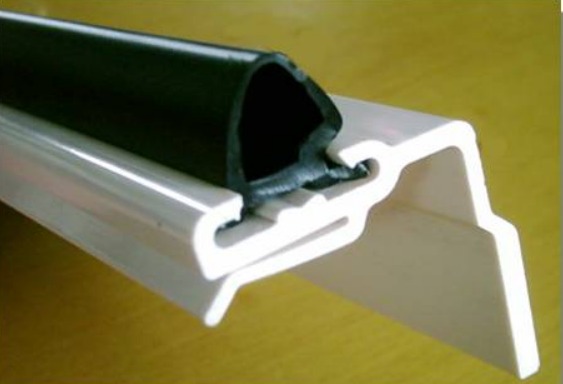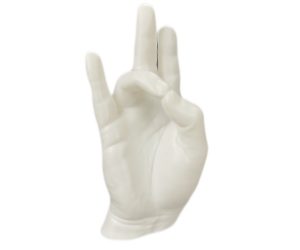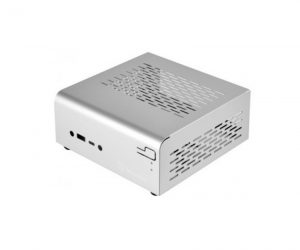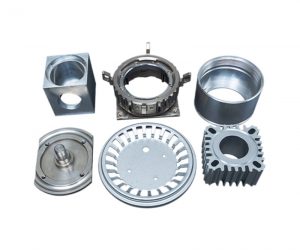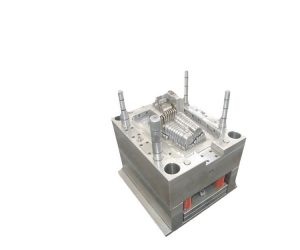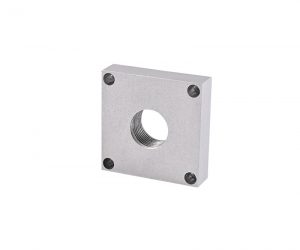In modern manufacturing, achieving intricate designs and increased functionality without multiple assembly steps is crucial. A multi-color injection molding machine is a sophisticated piece of equipment that allows manufacturers to inject two or more colors or materials into a single plastic part in one go. In this blog post, we’ll introduce you to this technology, covering its benefits, applications, challenges, and essential considerations when choosing the right machine for your needs.
What is a Multi-Color Injection Molding Machine?
A multi-color injection molding machine is designed to inject multiple types of plastic materials or colors into the same mold during the same injection molding cycle. This process eliminates the need for additional assembly or secondary operations, making it a highly efficient way to produce parts with complex designs and color schemes. This capability is ideal for manufacturers looking to create multi-material products or parts with different colored components without relying on additional manual labor or processes.
Benefits of Multi-Color Injection Molding Machines
- Cost Reduction and Efficiency
Traditional injection molding requires multiple steps for creating parts with different colors or materials, often involving manual assembly or extra tooling. A multi-color machine eliminates these steps, saving both time and costs. Multiple components are injected simultaneously, reducing labor and assembly time, which leads to a more efficient production process. - Design Flexibility
Multi-color injection molding allows designers to create parts with intricate designs, such as multi-colored patterns or parts that combine different materials (e.g., soft-touch and hard plastic). It opens up new opportunities for aesthetic customization, enabling businesses to differentiate their products in a competitive market. - Improved Product Quality
With fewer manual assembly steps, there is less risk of error or part misalignment. The high precision of multi-color injection molding machines ensures that parts fit perfectly, with consistent color application and improved surface finish. This technology can also reduce material waste by efficiently using the right amounts of each color or material. - Increased Production Efficiency
Multi-color injection molding machines allow manufacturers to produce complex, multi-material parts in a single step. This streamlines production, enabling faster cycle times and higher throughput, which ultimately increases productivity. - Customization and Personalization
From toys to automobile interior panels, multi-color molding enables manufacturers to offer products in a wide range of colors and styles. This is especially valuable in industries such as consumer goods and electronics, where the aesthetic appeal of a product plays a significant role in its marketability.
Applications of Multi-Color Injection Molding Machines
Multi-color injection molding technology has become integral in a variety of industries. Below are some of the key sectors that benefit from this advanced manufacturing process:
- Automotive Industry
In the automotive sector, multi-color injection molding is used for creating interior parts like dashboards, console components, and exterior decorative elements such as grille parts or badges. The technology enables the production of intricate designs with different colors and materials that would otherwise require several separate processes. - Consumer Goods
Manufacturers of household items, electronics, and toys benefit from multi-color injection molding. Toys, for instance, often need parts made from different colored materials, like dolls or multi-colored building blocks. In consumer electronics, it can be used to create aesthetically pleasing casings or control panels. - Medical Devices
In the medical industry, multi-color injection molding is useful for producing medical components that require both aesthetic appeal and functionality. This includes surgical instruments, medical device housings, or packaging materials. The use of different materials and colors can improve the usability and safety of medical products. - Home Appliances
The ability to inject multiple colors and materials into one product is also beneficial in appliances like refrigerators, washing machines, and air conditioners. Manufacturers can create stylish and functional control panels or casings with multi-color injection molding, enhancing the product’s design and market appeal. - Packaging
Multi-color molding is also used for creating multi-component packaging solutions, such as food containers with separate sections or caps with various materials. This is important for improving both the functionality and the visual attractiveness of consumer goods packaging.
Challenges of Multi-Color Injection Molding
While the advantages of multi-color injection molding are significant, it is not without its challenges:
- High Initial Investment
Multi-color injection molding machines are more expensive than traditional single-material molding machines. Their complexity, including additional tooling and specialized molds, increases the upfront cost. This investment can be prohibitive for smaller companies or startups. - Operational Complexity
The operation of multi-color machines requires a higher level of expertise compared to standard injection molding. The molding process is more complex because it involves managing multiple material flows, temperature control, and synchronization of the injection cycles. As a result, operator training is essential to avoid mistakes. - Material Compatibility Issues
Not all materials are compatible with each other, and this is particularly true for multi-material injection molding. Ensuring the materials bond properly without issues like delamination or poor adhesion is crucial. Some materials may also require different processing temperatures or pressures, further complicating the production process. - Mold Design and Maintenance
The mold design for multi-color molding is often more intricate, requiring precision to ensure the correct material is injected into the right cavities. Furthermore, molds used in multi-color molding machines tend to wear out faster due to the increased complexity and constant material flow. Regular maintenance and cleaning are necessary to avoid defects in the final product. - Increased Cycle Time for Some Products
While multi-color injection molding reduces the need for manual assembly, the cycle time for some multi-material products can be longer than traditional single-material molding due to the complexity of material handling and mold changes.
Choosing the Right Multi-Color Injection Molding Machine
When selecting a multi-color injection molding machine, it's essential to consider several factors to ensure it meets your specific needs:
- Production Needs
Assess the type of products you will be manufacturing, the number of colors or materials involved, and the complexity of the designs. Understanding these factors will help you determine the machine specifications you need. - Machine Type
Multi-color injection molding machines can be classified into various types, such as rotary platen, two-shot, and co-injection molding machines. Each type has its benefits, so understanding which is best suited for your production needs is crucial. - Cost vs. Benefits
While multi-color injection molding machines have higher initial costs, their efficiency, reduced labor needs, and enhanced design capabilities can lead to cost savings over time. Make sure the benefits of the machine justify the investment. - Supplier Reputation and After-Sales Support
Choose a reputable supplier with a proven track record of providing high-quality machines and strong after-sales support. Machines for multi-color injection molding often require specialized expertise, and having reliable support for maintenance and troubleshooting is critical. - Energy Consumption and Maintenance Costs
Consider the energy efficiency and maintenance costs of the machine. Multi-color machines tend to consume more energy, so choose a machine that balances performance with energy efficiency. Additionally, ensure that the maintenance requirements are manageable for your team.
Conclusion
Multi-color injection molding machines offer many advantages, such as increased design flexibility, improved product quality, and greater production efficiency. Industries like automotive, medical, consumer goods, and home appliances can benefit greatly from the ability to produce parts with multiple colors or materials in one process. However, challenges like high investment costs, operational complexity, and material compatibility issues must also be taken into account.
By understanding the technology, evaluating your production needs, and carefully choosing the right machine, you can leverage the benefits of multi-color injection molding to create high-quality, cost-effective products that stand out in the market.
If you have any questions or need more information on multi-color injection molding machines, feel free to leave a comment below or contact us for further assistance!
What is Multi-Color Injection Molding Machine?
A multi-color injection molding machine is a type of plastic injection molding machine that can produce parts with two or more colors or materials in one operation. It is also known as multi-shot injection molding machine, two-shot injection molding machine, or co-injection molding machine.
A multi-color injection molding machine has two or more injection units that apply different plastic polymers or colors through independent nozzles on one mold. The mold can have multiple cavities or chambers to accommodate the different materials. The machine can also have a rotary table or a core-back system to switch the mold halves during the injection cycle.
How Does Multi-Color Injection Molding Machine Work?
The working principle of a multi-color injection molding machine is similar to that of a standard injection molding machine, except that it involves more than one injection cycle. Depending on the design of the machine and the mold, there are different ways to achieve multi-color injection molding. Here are some common methods:
- Sequential Injection: This method uses a single nozzle to inject different materials or colors one after another into the same cavity. The nozzle moves along the mold axis to change the position of injection. The previous material must be solidified before the next material is injected. This method is suitable for simple parts with clear boundaries between colors or materials.
- Sandwich Injection: This method uses two nozzles to inject a core material and a skin material simultaneously into the same cavity. The core material forms the inner layer of the part, while the skin material forms the outer layer. The ratio of the core and skin materials can be adjusted to control the thickness and appearance of the part. This method is suitable for parts that require a different color or material on the surface and inside.
- Transfer Injection: This method uses two nozzles to inject different materials or colors into two separate cavities. The first cavity forms a preform of one material or color, which is then transferred to the second cavity where another material or color is injected around it. The transfer can be done by a robot arm, a sliding plate, or a rotating table. This method is suitable for parts that require complex shapes or patterns with multiple colors or materials.
- Co-Injection: This method uses a special nozzle that can inject two materials or colors simultaneously into the same cavity. The nozzle has two channels that merge at the tip, creating a core-skin structure similar to sandwich injection. However, unlike sandwich injection, co-injection can create a gradient effect between the core and skin materials, as well as mix them together in some areas. This method is suitable for parts that require a natural-looking transition between colors or materials.
What are the Benefits of Multi-Color Injection Molding Machine?
Using a multi-color injection molding machine can offer several advantages over other methods of producing multi-color or multi-material parts, such as painting, printing, laminating, or assembling. Some of these advantages are:
- Reduced Cost: A multi-color injection molding machine can reduce the cost of production by eliminating multiple and secondary operations, such as painting, printing, laminating, or assembling. It can also save on material waste, energy consumption, labor cost, and maintenance cost.
- Improved Quality: A multi-color injection molding machine can improve the quality of the parts by ensuring consistent color and material distribution, avoiding defects such as peeling, cracking, fading, or misalignment. It can also enhance the mechanical properties and performance of the parts by creating a strong bond between different materials.
- Increased Efficiency: A multi-color injection molding machine can increase the efficiency of production by reducing cycle time and increasing output. It can also simplify the production process and reduce inventory and storage space by using fewer molds and machines.
- Enhanced Design: A multi-color injection molding machine can enhance the design of the parts by enabling more creativity and flexibility. It can create parts with complex shapes, patterns, textures, and effects that are difficult or impossible to achieve by other methods. It can also improve the aesthetic appeal and functionality of the parts by adding features such as soft-touch, ergonomic, anti-slip, or anti-vibration.
What are the Applications of Multi-Color Injection Molding Machine?
Multi-color injection molding machine can be used to produce a wide range of parts for various industries and applications, such as:
- Automotive: Multi-color injection molding machine can produce parts such as dashboard, instrument panel, steering wheel, airbag cover, door handle, bumper, light cover, mirror, and emblem that require different colors or materials for aesthetic or functional purposes.
- Medical: Multi-color injection molding machine can produce parts such as syringe, catheter, tube, valve, connector, implant, and device that require different colors or materials for identification, safety, or biocompatibility purposes.
- Electronics: Multi-color injection molding machine can produce parts such as keyboard, mouse, remote control, switch, button, enclosure, and case that require different colors or materials for appearance or performance purposes.
- Consumer Goods: Multi-color injection molding machine can produce parts such as toothbrush, razor, pen, bottle cap, toy, game controller, and cosmetic container that require different colors or materials for attraction or functionality purposes.
What are the Challenges of Multi-Color Injection Molding Machine?
Despite the benefits and applications of multi-color injection molding machine, there are also some challenges and limitations that need to be considered before choosing this technology. Some of these challenges are:
- High Investment: A multi-color injection molding machine requires a higher initial investment than a standard injection molding machine due to the additional injection units, nozzles, molds, and accessories. It also requires more space and power to operate.
- Complex Process: A multi-color injection molding machine involves a more complex process than a standard injection molding machine due to the multiple injection cycles, material changes, mold movements, and parameter adjustments. It also requires more skill and experience to operate and maintain.
- Material Compatibility: A multi-color injection molding machine requires a careful selection of materials that are compatible with each other in terms of melting temperature, viscosity, shrinkage, adhesion, and chemical resistance. Otherwise, it may cause problems such as delamination, warping, cracking, or poor bonding.
- Mold Design: A multi-color injection molding machine requires a special mold design that can accommodate the different materials and colors in the same cavity or chamber. The mold design must also consider factors such as gate location, runner size, venting system, cooling system, and ejection system.
How to Choose the Best Multi-Color Injection Molding Machine?
Selecting the best multi-color injection molding machine requires careful consideration of various factors to ensure that the chosen machine meets the specific production needs and delivers optimal performance. Multi-color injection molding machines, also known as two-shot or multi-shot machines, allow for the production of complex parts with multiple colors or materials in a single molding cycle. Here are some essential steps to guide the selection process:
- Determine Production Requirements: Start by assessing the production requirements, including the expected output volume, part complexity, and desired cycle time. Understanding the production needs helps in choosing a machine with the appropriate tonnage, injection speed, and clamping force to handle the specific workload efficiently.
- Material Compatibility: Consider the types of materials and colors that will be used in the production process. Different multi-color injection molding machines are designed to handle specific materials and color combinations. Ensure that the machine can process the materials and colors required for the intended products.
- Shot Size and Configuration: The shot size refers to the maximum amount of material that the injection unit can deliver in a single shot. Evaluate the shot size and configuration options offered by the machine to determine if it aligns with the volume and complexity of the parts to be produced.
- Clamping Unit and Mold Size: The clamping unit's size and specifications should match the dimensions of the molds used for multi-color injection. Consider the maximum mold size that the machine can accommodate and ensure it can handle the size and complexity of the molds required for the intended parts.
- Control System: The control system is a critical aspect of a multi-color injection molding machine. Look for machines equipped with advanced control panels and user-friendly interfaces that allow for easy programming and parameter adjustment. A robust control system ensures precise and consistent multi-color injection, leading to high-quality parts.
- Energy Efficiency: Energy efficiency is becoming increasingly important in modern manufacturing. Look for machines with energy-saving features, such as servo motors and variable pump systems, which can significantly reduce operational costs over time.
- Cooling System: Efficient cooling is crucial for multi-color injection molding to prevent color bleeding and achieve consistent part quality. Evaluate the machine's cooling system, including the availability of cooling channels in the mold, to ensure it can adequately cool the mold during the injection process.
- Technical Support and Service: Choose a multi-color injection molding machine from a reputable manufacturer that provides comprehensive technical support and after-sales service. Access to expert technical assistance and readily available spare parts ensures smooth operation and minimizes downtime in case of maintenance or repairs.
- Price and Cost-effectiveness: Compare the prices of different multi-color injection molding machines, but also consider the overall cost-effectiveness over the machine's lifespan. While a lower initial price may be appealing, a more expensive machine with higher efficiency and reliability may offer better long-term value.
selecting the best multi-color injection molding machine requires a careful evaluation of production requirements, material compatibility, shot size, clamping unit, control system, cooling system, energy efficiency, technical support, and overall cost-effectiveness. By thoroughly considering these factors and working with reputable manufacturers or suppliers, manufacturers can invest in a reliable and efficient machine that meets their multi-color injection molding needs, enabling the production of high-quality and visually appealing products.
